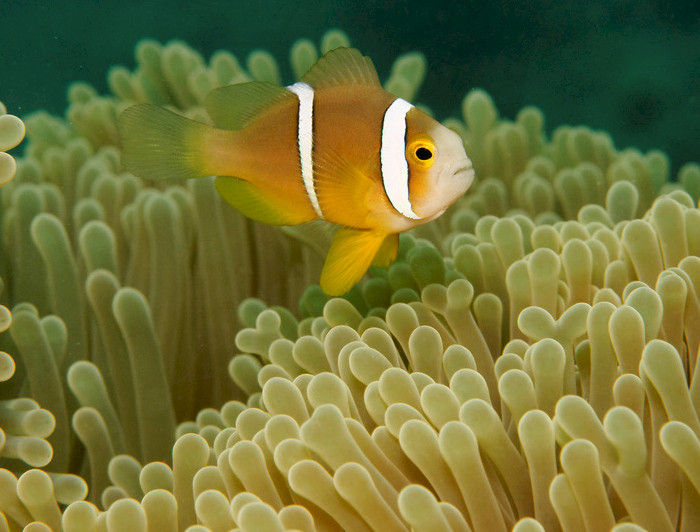"Lighting Nemo": Why Clownfish Need Their Sleep?
The streetlights on docks or ports are affecting marine life, scientists warn. A new study shows how artificial night light significantly impacts the clownfish population near the coast.

photo_camera Like humans, fish need a period of inactivity, which is crucial for their well-being. However, artificial light at night is affecting their natural resting.
Working on the reefs around Moorea in French Polynesia, scientists -from France, UK, Chile, and Australia- made an incredible discovery: artificial light at night (ALAN) could severely affect the clownfish population. By ALAN, they mean the alteration of natural light levels as the result of human-made light sources.
After a two-year-long experiment, scientists published a new study about this impact: Nearshore juvenile clownfish under lights had higher mortality than juveniles in non-lit anemones. Furthermore, those that survived had less growth.
The experiment
Scientists exposed 42 clownfish in their host anemones to either artificial light at night or natural light in the lagoon. The clownfish were monitored over nearly two years, individually identified as survivors, and captured to measure their growth.
Joint lead author, Jules Schligler -student at the École Pratique des Hautes Études (EPHE) PSL Université Paris, CRIOBE, France- revealed:
"Clownfish can live in shallow coastal waters and are highly sedentary living in anemones. So they can be easily impacted by light at night coming from streetlights, piers, or ports. As with many other reef fish, clownfish feed, reproduce, defend their territories and interact with other fish during the day, and reset while sleeping at night. However, 36% of the clownfish exposed to light pollution were more likely to die than fish under natural light cycles. Like humans, fish need a period of inactivity, which is crucial for their well-being."
"Even those fish that survived didn't entirely escape the effects of Artificial Light At Night (ALAN) as they grew less than fish from the control group. It is the first time that ALAN impacts have been tested on coral reefs fish and over such a long time. 12% of all coral reef fish live in association with another sedentary species, such as a coral or anemone. Consequently, light pollution could already have severe negative impacts on more than a tenth of fringing reef fish populations." added joint lead author, Daphne Cortese, -former Ph.D. student at the École Pratique des Hautes Études, PSL Université Paris, CRIOBE, France, and now a post-doctoral fellow at the University of Glasgow, UK.
Suzanne Mills -Associate Professor at Ecole Pratique des Hautes Etudes, PSL, based at CRIOBE, French Polynesia- also explained:
"Throughout evolution, organisms have established biological rhythms based on light. Daily, lunar and seasonal rhythms play a key role in biological processes, such as feeding, reproduction, and
migration. Unfortunately, by preferring to live on the coast and benefitting from illuminated areas at night, we are disrupting these key processes in marine organisms."
Urgent Mitigation Measures
The light pollution in the experiments was representative of that to which fringing-reefs are exposed. Therefore the impact in areas such as ports could be even more significant. Management strategies should consider reducing coastal lit areas.
"Many marine protected areas are impacted by light pollution at night, and authorities are not taking this pollution into account. We hope that policymakers take this threat much more seriously for
future management strategies” added Ricardo Beldade, Associate Professor at the Pontificia Universidad Católica de Chile.
"Light intensities used in this study represent levels that shallow fringing reefs are exposed to but are lower than levels near large cities and ports. The impacts of light pollution found here are probably underestimated. We required urgent mitigation measures and policy changes," said Stephen Swearer, Professor at the University of Melbourne, Australia.


